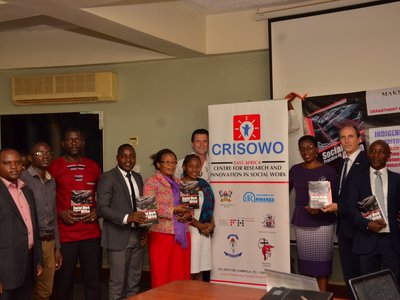

In early 2021, CRISOWO achieved a big success: Three member institutions secured a funding from the Norwegian Programme for Capacity Development in Higher Education and Research for Development (NORHED II 2021-2026) to implement a 6-year project, which will build on the achievements and milestones of PROSOWO. The project ‘Building Resilient Communities through Inclusive Education in East Africa’ is a joint undertaking between Makerere University in Uganda, University of Rwanda and Institute of Social Work in Tanzania, as well as University of Agder in Norway. The overall budget of the project will be 2.2 Million US$ (about 1.8 Million Euro).
In the words of the CRISOWO coordinator, Dr. Janestic Twikirize from Makerere University: “Although only three of the member institutions are directly involved, it is strongly hoped that the results and outputs will be beneficial across the East Africa region and beyond through a well-crafted dissemination strategy.”
The new project aims to enhance the quality of social work education and further increase participation and commitment to the social work indigenisation agenda, which was a key element in the PROSOWO project. It centres inclusive development on three key interventions, namely:
- Supporting the enrolment of vulnerable and disadvantaged students from the African partners in PhD and Master’s programmes (sponsorship is foreseen for a total of 30 Master and 8 PhD students);
- Establishing centres for innovation (social community labs) in remote and hard-to-reach rural areas and in urban slums to initiate a process of community-led research and an intensified university-community dialogue that will enhance local participation in development processes, generate indigenous or locally relevant problem-solving models, and derive lessons for grassroots-oriented social development programming; and
- Developing and executing the local joint research agenda on social equality and inclusion at partner institutions.
